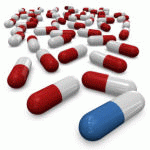Pharmacology
|
28 january 2020 14:00:21 |
| Marine Drugs, Vol. 18, Pages 86: Protein Hydrolysates from Anchovy (Engraulis encrasicolus) Waste: In Vitro and In Vivo Biological Activities (Marine Drugs) |
|
Tweet Fish waste utilization to obtain protein hydrolysates has been demonstrated to be a useful strategy to face both environmental and economic impacts while obtaining high-value products with remarkable biological and nutritional properties. In the present study, protein hydrolysates obtained from anchovy Engraulis encrasicolus (APH) by-products were assessed for their potential biological activities in both in vitro and in vivo models. The treatment with APH exerted a significant protection against LPS-induced inflammation in RAW 264.7 cells, decreasing the protein expression of pro-inflammatory mediators (i.e., COX-2) and inhibiting the nuclear translocation of NF-κB through IκB-α. Moreover, APH modulated the expression of iNOS, MnSOD and HO-1, thus decreasing the severity of oxidative stress. The supplementation of APH in the diet of ApoE knockout mice down-regulated the proinflammatory cytokines (i.e., TNF-α, IL-1α, IL-1β, IL-6) in both aorta and heart tissues, and modulated the expression of oxidative stress-related genes (Cu/ZnSod, MnSod, Cat, Gpx and Ho), indicating that APH can exert a beneficial role, having anti-inflammatory and antioxidant activities. The nutritional properties of APH, together with their biological activities herein reported, highlight the possibility of obtaining bioactive molecules from fish waste and encourage their use as potential nutraceuticals in food and pharmaceutical industries in the next future. |
| 206 viewsCategory: Biochemistry, Molecular Biology, Pharmacology |
 Marine Drugs, Vol. 18, Pages 83: Algae Oil Treatment Protects Retinal Ganglion Cells (RGCs) via ERK Signaling Pathway in Experimental Optic Nerve Ischemia (Marine Drugs) Marine Drugs, Vol. 18, Pages 83: Algae Oil Treatment Protects Retinal Ganglion Cells (RGCs) via ERK Signaling Pathway in Experimental Optic Nerve Ischemia (Marine Drugs)Marine Drugs, Vol. 18, Pages 85: Haematococcus pluvialis-Derived Astaxanthin Is a Potential Neuroprotective Agent against Optic Nerve Ischemia (Marine Drugs) 
|
| blog comments powered by Disqus |
MyJournals.org
The latest issues of all your favorite science journals on one page
The latest issues of all your favorite science journals on one page



